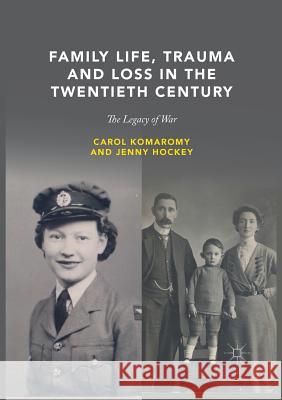Family Life, Trauma and Loss in the Twentieth Century: The Legacy of War » książka
topmenu
Family Life, Trauma and Loss in the Twentieth Century: The Legacy of War
ISBN-13: 9783030095314 / Angielski / Miękka / 2019 / 266 str.
Family Life, Trauma and Loss in the Twentieth Century: The Legacy of War
ISBN-13: 9783030095314 / Angielski / Miękka / 2019 / 266 str.
cena 362,27
(netto: 345,02 VAT: 5%)
Najniższa cena z 30 dni: 346,96
(netto: 345,02 VAT: 5%)
Najniższa cena z 30 dni: 346,96
Termin realizacji zamówienia:
ok. 22 dni roboczych
Bez gwarancji dostawy przed świętami
ok. 22 dni roboczych
Bez gwarancji dostawy przed świętami
Darmowa dostawa!
Kategorie:
Kategorie BISAC:
Wydawca:
Palgrave MacMillan
Język:
Angielski
ISBN-13:
9783030095314
Rok wydania:
2019
Dostępne języki:
Ilość stron:
266
Waga:
0.35 kg
Wymiary:
21.01 x 14.81 x 1.57
Oprawa:
Miękka
Dodatkowe informacje:
Wydanie ilustrowane











